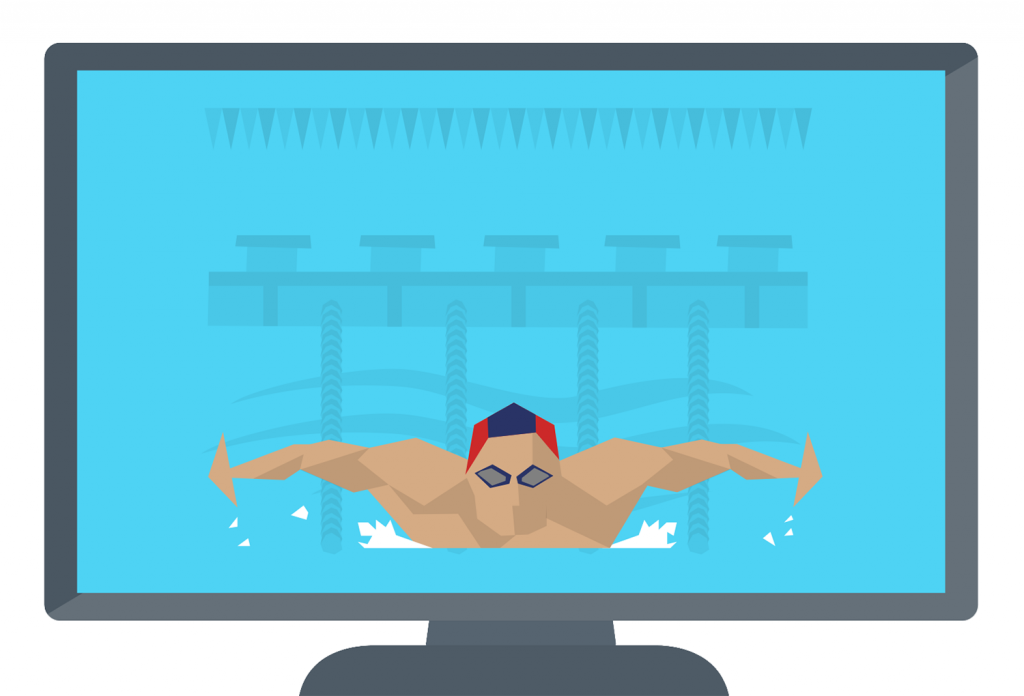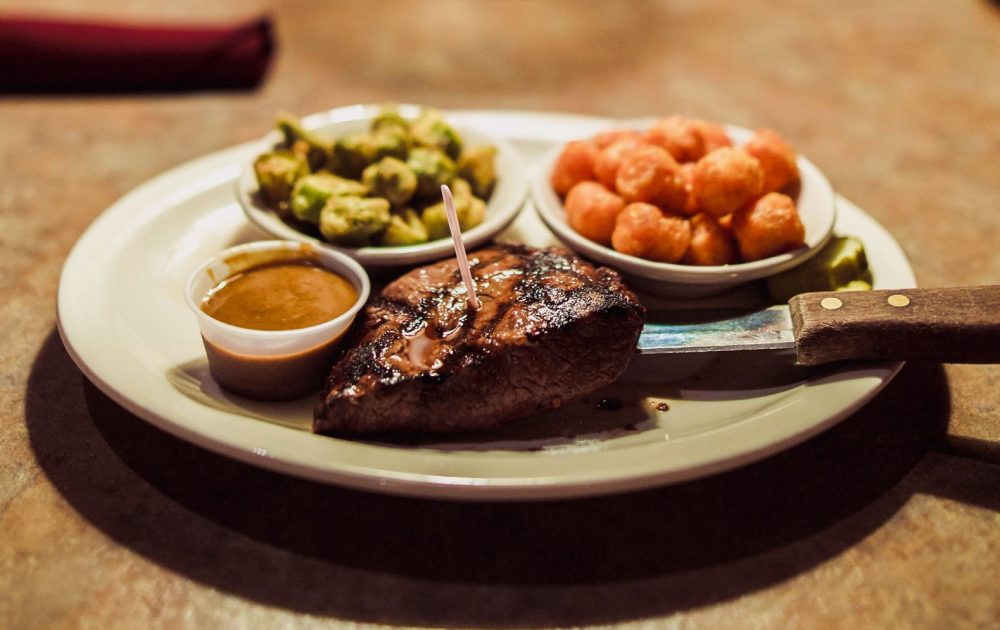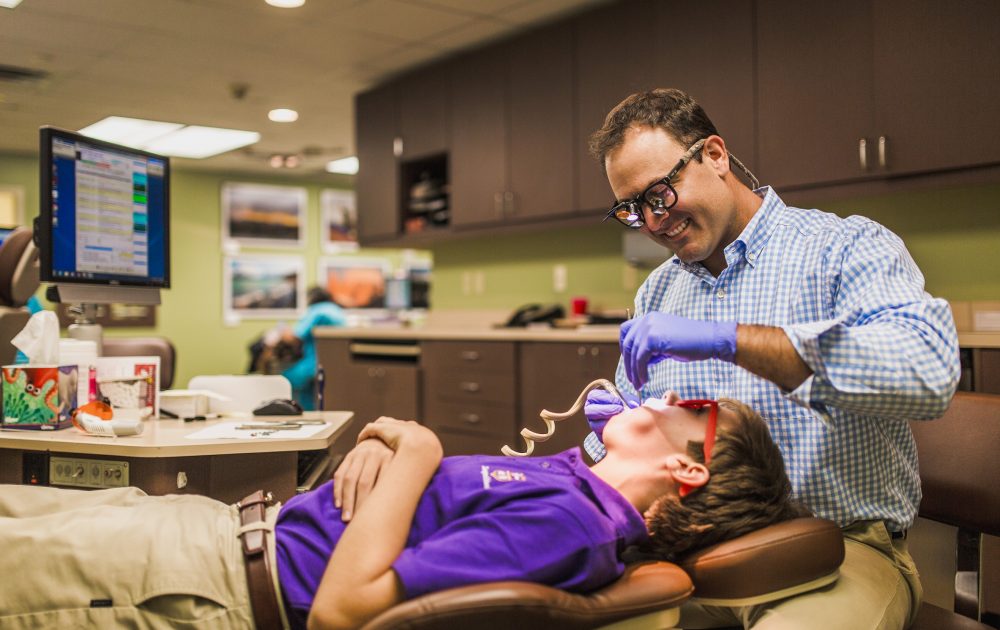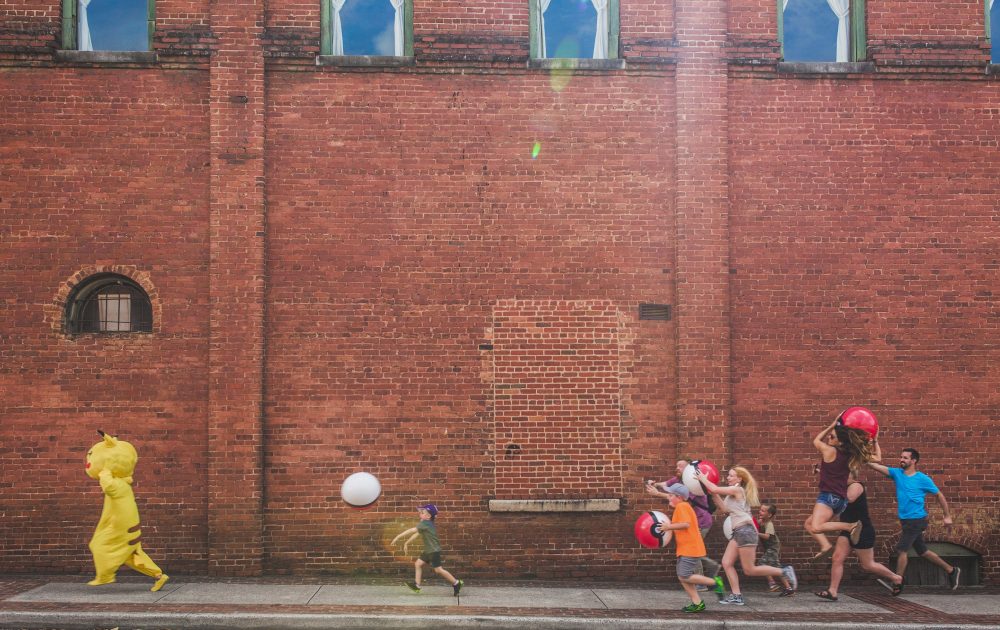
Here is nothing as special as watching greatness.” – Sean Astin I write this after my third cup of coffee this morning and as my bleary eyes try to focus on the computer screen. Last night, I stayed up way past my bedtime. And as I pay the price today, I’d do it again and again and again.
In fact, I’ve done this my entire life. And I find it interesting that the actor who brought the story of underdog walk-on Rudy Ruettiger to life in film offers a quote, which fits my reason for skipping sleep.
Instead of sleeping, I stood riveted to the TV, watching Michael Phelps, Katie Ledecky and the Final Five, as they now want to be known as, not only win gold medals in the Rio Olympics, but also dominate their competition along the way.
All my life, sports have captivated me. I’ve been lucky to parlay an almost unhealthy ob-session with it into a more-than-two-decade career covering sports.
At Auburn University, the head of the journalism program, Jerry Brown, once asked me in his newspaper management class why I wanted to cover sports.
My answer at such a young age couldn’t do his far-ranging question justice.I choose sports because it offers a glimpse into the heart of the athletes. For every performance, dominating or not, the athletes, coaches and more sacrifice of themselves to get better.
And when those athletes achieve results, they can often be transcendent. Phelps’ 21 gold medals and counting (remember, my deadline for this came before the Rio Olympics ended) represent a pinnacle in human achievement, at least in swimming terms.
Ledecky’s precocious performances offer us all a preview of what we might see over the next four to eight years. I’ve already blocked time off my schedule to try to watch all of Usain Bolt’s races on the track.
Like Phelps, Bolt offers us a once-in-a-life-time glimpse at a human reaching heights almost beyond expectation. And when he leaves the scene, track and field will lose a bit of luster.
And this version of the U.S. women’s gymnastics team, at least for now, enters the records books as the best this or any other country has produced.
But this isn’t a new thing for me. I’ve been this way ever since I can remember.
Listening to a radio broadcast of an Au-burn football game, my dad turned to me and told me the freshman running back, who had just broken off a big run, had a chance to be something special.
The back’s name was Bo Jackson. And my dad’s prognostication proved to be a massive understatement, and I reveled in every triumph Bo had at Auburn and beyond.
And, of course, covering sports locally al-lowed me a chance to see many great athletes. A sophomore from Adairsville caught my eye in both football and basketball. That athlete, Vic Beasley, now plays for the Atlanta Falcons after an All-American career at Clemson.
An eighth-grade running back impressed me at a middle school football game. By now that back, Nick Chubb, should be back to bruising SEC defenses for Georgia.
Watching these players grow and achieve success is fun, and I can’t wait to see the next great athlete.
Like many, I harbored the dreams of competing in the Olympics. Needless to say, I didn’t make it. But I’ve had opportunities to see and run with Olympians.
One such time came on a chilly morning at Berry College. My plans of a nice, easy 11-mile run got blown away when 2012 Olympian Janet Cherobon-Bawcom showed up. I ran beside her and Jay Stephenson for maybe two miles. They were running easy. I was running hard trying to keep up.
Bawcom was friendly and fun to run with. At some point, Jay and Janet picked up the pace. I looked down at my watch for a second and then looked back up. In an instant, they were seemingly a quarter mile in front of me. Bawcom’s figure quickly faded into the distance, but the memory is there.
That’s why I chose to stay awake – so I can watch these great athletes and hold on to the memory.
And my answer to Dr. Brown’s question is easy. You’ve already read it courtesy of the guy who played Rudy.
I cover sports because there is nothing as special as watching greatness.
*The views expressed in this column are those of the writer, and do not represent the opinions of V3 Magazine.



